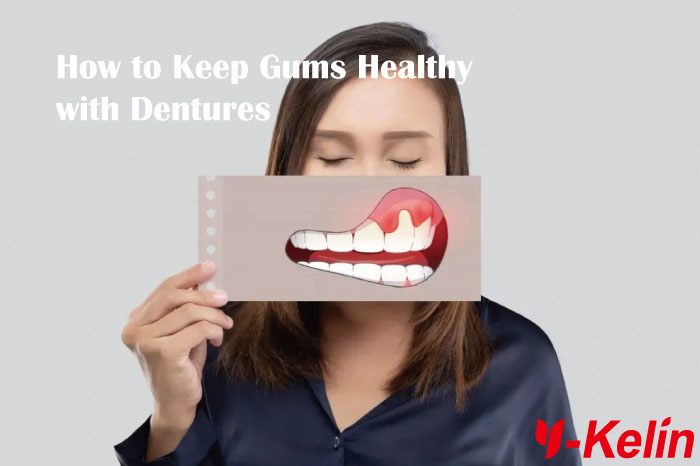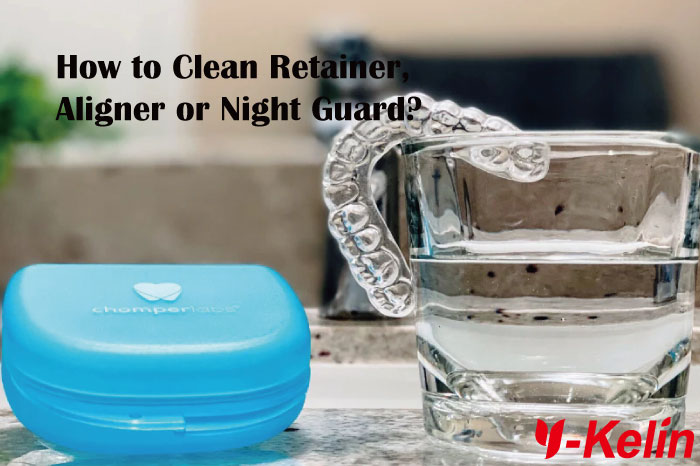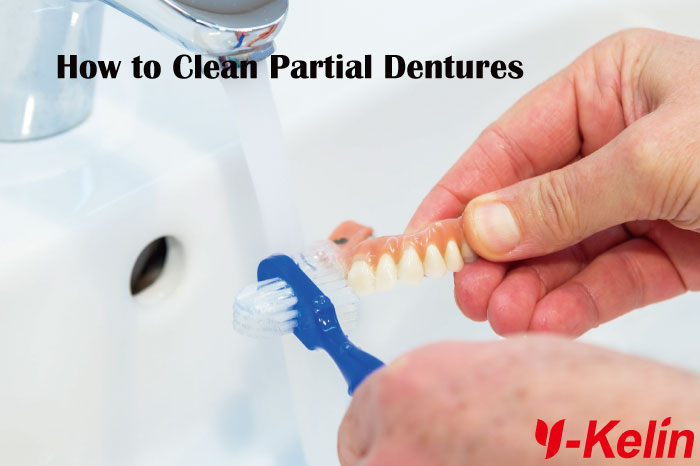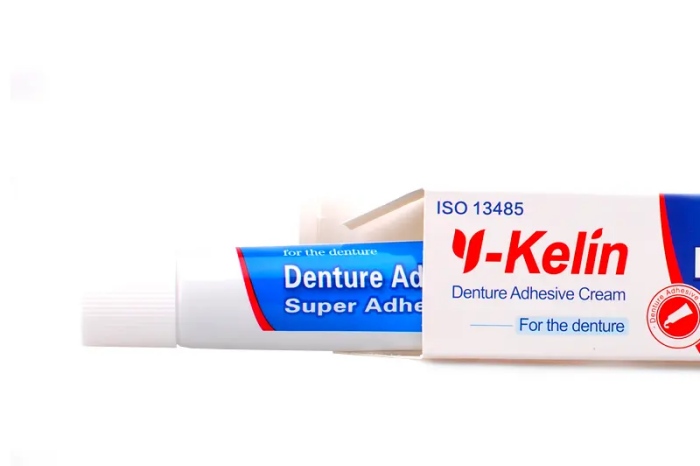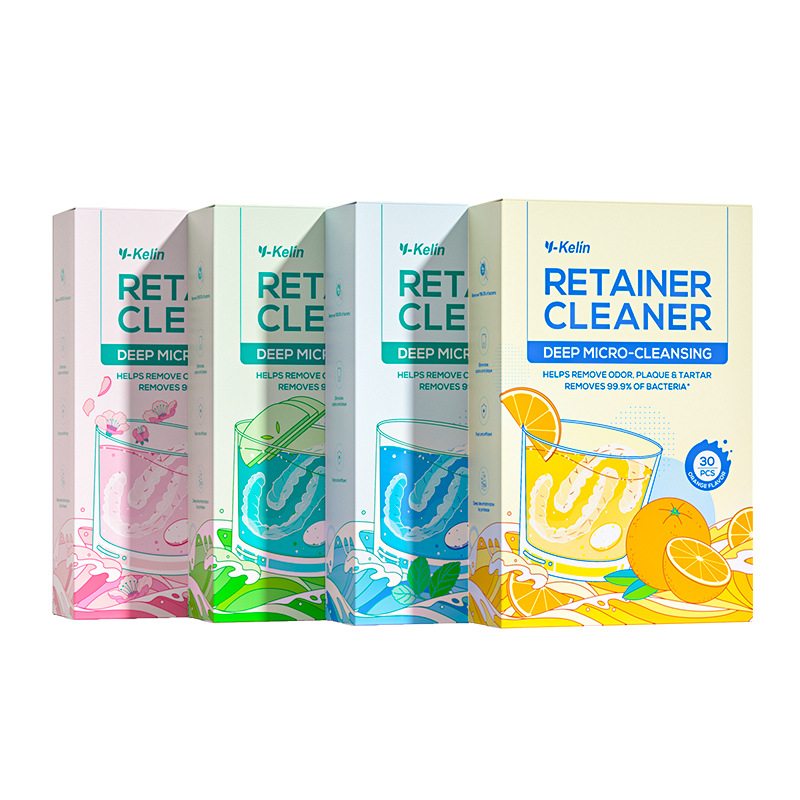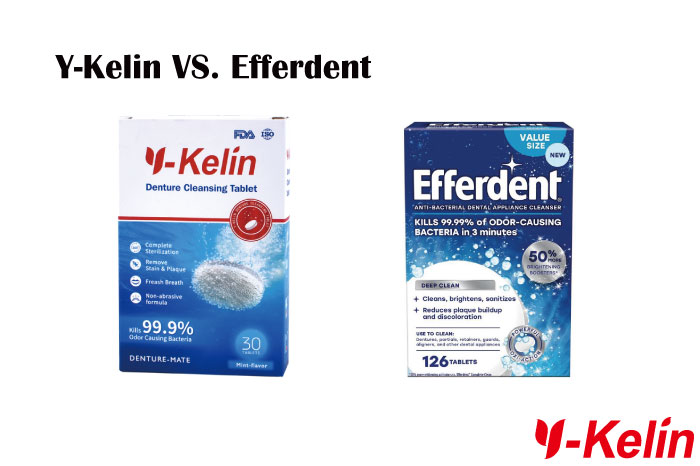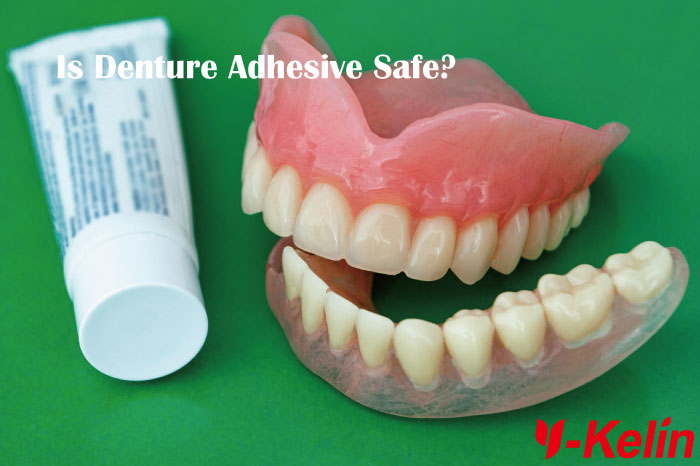
Is Denture Adhesive Safe?
Published On:
In this blog, we’ll dive into everything you need to know about denture adhesive safety.
Understanding Denture Adhesive
What is Denture Adhesive and How Does it Work?
Denture adhesive is a specially formulated product designed to hold dentures securely in place by creating a seal between the denture and your gums. It comes in several forms, including creams, powders, and strips, each offering unique benefits depending on your preferences and needs.
Creams are the most commonly used, offering a strong, lasting hold. Powders are lightweight and easy to apply, while adhesive strips provide a mess-free alternative that’s especially convenient for travel or quick fixes.
Denture adhesives are widely used to enhance the stability of dentures, ensuring they stay in place during daily activities like eating, talking, or laughing.
The Role of Denture Adhesive in Daily Comfort
For many denture wearers, adhesives are the key to confidence. They help dentures fit snugly, reducing movement and preventing irritation caused by loose dentures.
This added stability makes eating and speaking more comfortable, allowing wearers to enjoy a wider variety of foods without worrying about their dentures slipping. With the right adhesive, daily activities become smoother, restoring the freedom and confidence that a natural smile brings.
Examining Denture Adhesive Safety
Is Denture Adhesive Safe to Use Daily?
When used correctly, denture adhesive is safe for daily use and can significantly improve the comfort and stability of your dentures. The key is proper application—apply a small, pea-sized amount of adhesive to clean, dry dentures, avoiding overuse, which can lead to excessive residue and discomfort.
Using too much adhesive not only makes removal challenging but may also result in unnecessary ingestion of the product. Following the manufacturer’s guidelines ensures safe and effective use without adverse effects.
Zinc in Denture Adhesives: What You Need to Know
Zinc is a common ingredient in many denture adhesives due to its strong bonding properties. While safe in small amounts, prolonged or excessive use of zinc-based adhesives can lead to health issues like zinc toxicity, which may cause nerve damage and other complications.
To minimize risks, many wearers are opting for zinc-free denture adhesives, which provide a secure hold without the potential side effects. These alternatives are especially beneficial for those using adhesives daily or in larger amounts.
Gum Health and Denture Adhesives
Adhesive residue left on gums can lead to irritation, especially if not cleaned thoroughly. Over time, this buildup may trap bacteria, contributing to bad breath or inflammation.
To maintain healthy gums, it’s crucial to clean adhesive residue daily using a soft toothbrush, warm water, or a damp cloth. Regularly allowing your gums to “rest” by removing dentures for at least six hours a day also promotes tissue health and reduces irritation. These practices ensure that adhesives enhance your denture experience without compromising oral health.
Potential Side Effects of Denture Adhesives
While denture adhesives are generally safe when used correctly, there are potential side effects that wearers should be aware of.
1. Adhesive Buildup: Overusing adhesives can lead to a sticky residue on dentures and gums, which can trap bacteria and food particles. This may cause irritation, bad breath, or even gum infections if not cleaned thoroughly.
2. Gum Irritation: Prolonged use or improper cleaning can result in redness, swelling, or sensitivity in the gum tissue, particularly if adhesives are not fully removed each day.
3. Allergic Reactions: Some individuals may experience allergies to ingredients in adhesives, such as fragrances, preservatives, or zinc. Symptoms can include itching, rash, or inflammation.
4. Zinc Toxicity: Excessive use of zinc-based adhesives over long periods may lead to zinc poisoning, which can cause neurological issues like numbness, tingling, or weakness. Switching to zinc-free adhesives can mitigate this risk.
5. Poor Fit Masking Underlying Issues: Relying on adhesives to secure loose dentures can mask the need for professional adjustments, potentially leading to long-term oral health problems or discomfort.
How to Avoid Side Effects:
To minimize risks, follow the manufacturer’s instructions, opt for zinc-free adhesives, and maintain daily cleaning routines for dentures and gums. If you notice persistent irritation or other symptoms, consult your dentist for guidance. Using safe and high-quality products, like those offered by Y-Kelin, can further ensure a secure and healthy denture experience.
Exploring Risks and Alternatives
Side Effects of Overusing Denture Adhesive
While denture adhesive can be a valuable tool, overusing it may lead to several issues. One common concern is adhesive buildup, which can irritate gums and trap bacteria, resulting in discomfort and potential infections. Prolonged use of excess adhesive can also make cleaning dentures and gums more difficult, reducing oral hygiene.
In some cases, individuals may experience allergic reactions to ingredients in adhesives. Symptoms might include redness, swelling, or persistent irritation in the gum area. If these occur, switching to a hypoallergenic or zinc-free formula can often resolve the problem.
Alternatives to Denture Adhesive
For those seeking adhesive-free solutions, several options are worth considering:
Adhesive-Free Dentures: These are designed to fit snugly without the need for adhesives, relying on a precise fit and natural suction. While convenient, they may not suit everyone, particularly if gum or bone structure has changed.
Denture Stabilizers: These liners or cushions provide additional grip and stability, reducing the need for adhesives. They’re especially helpful during the adjustment phase for new dentures.
Custom-Fit Dentures: Visiting a dentist for custom-made dentures can eliminate the need for adhesives entirely. A professional fit ensures comfort, stability, and reduced irritation. Though more expensive upfront, they provide a long-term solution for many wearers.
Choosing Safe Denture Adhesives
Best Safe Denture Adhesive Brands
When selecting a denture adhesive, opting for zinc-free and non-toxic formulas is key to ensuring safety and comfort. Popular zinc-free brands, such as Fixodent Free, Poligrip Free, Y-Kelin Denture Adhesive, and Secure Adhesive, provide reliable hold without the potential risks of zinc overexposure.
A safe denture adhesive should be hypoallergenic, easy to clean, and free of harsh chemicals. Look for products with clear labeling, indicating compatibility with sensitive gums and non-toxic ingredients. Reading reviews and consulting your dentist can also help in choosing the right brand for your specific needs.
Safe Denture Practices for Daily Use
Using denture adhesive safely involves following a few simple guidelines. Apply only the recommended amount—usually a few small dots or a thin layer—and avoid overuse, which can lead to buildup and discomfort.
To minimize risks, remove and clean dentures daily, using a soft toothbrush and denture cleaning tablets to eliminate residue. Allow your gums to rest by removing dentures for at least six hours each day, promoting tissue recovery and maintaining oral health.
If dentures feel loose or require frequent adhesive reapplication, consult your dentist. Adjustments or custom-fitted dentures may reduce your reliance on adhesives, ensuring a more secure and comfortable fit without additional risks.
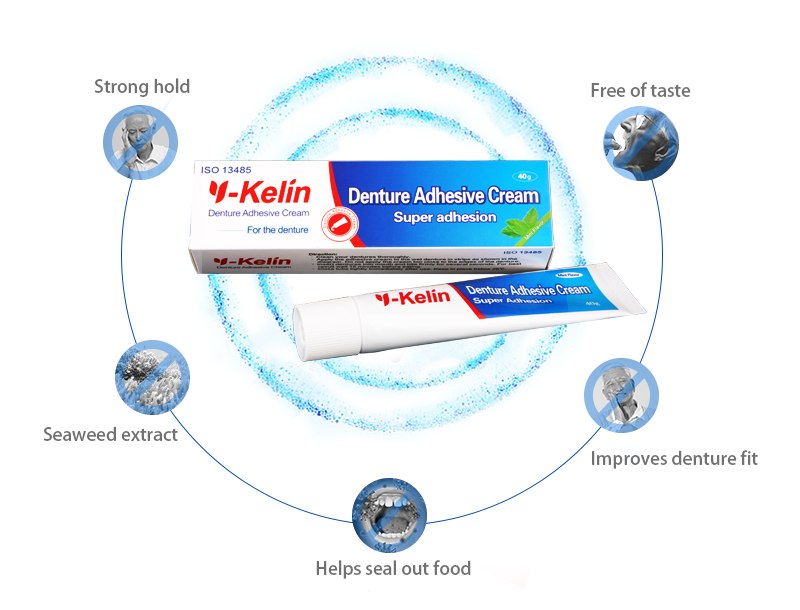
Conclusion
Denture adhesive can be a reliable solution for enhancing the stability and comfort of your dentures when used correctly. Key takeaways for safe use include applying only the recommended amount, choosing zinc-free or non-toxic formulas, and maintaining daily cleaning routines to prevent residue buildup and gum irritation.
When it comes to selecting safe and effective products, Y-Kelin stands out as a trusted brand offering high-quality, zinc-free denture adhesives and cleaning solutions. Designed to prioritize your oral health, Y-Kelin products help ensure a secure fit and maintain hygiene with ease.
If you experience discomfort, adhesive overuse, or persistent fit issues, consult your dentist. Professional adjustments or alternatives like custom-fitted dentures can provide a longer-term solution, reducing reliance on adhesives while ensuring a secure, comfortable fit.
With proper care, the right products, and support from brands like Y-Kelin, denture adhesive can be a safe and effective part of your oral health routine.
Related Posts
Get in Touch with Y-Kelin
Have questions or need more information? Contact us today, and our dedicated team will assist you promptly.


Y-Kelin is a trusted manufacturer of high-quality denture care products, including denture cleaning tablets, adhesive creams, and retainer cleaning solutions, offering customized services for global partners.
